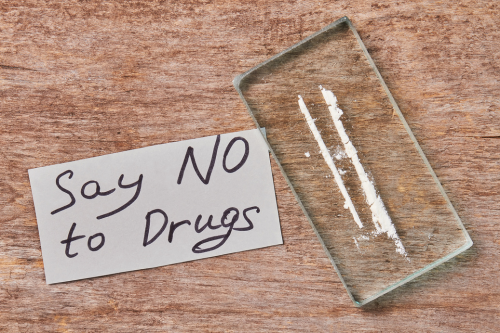

Withdrawal symptoms can range from mild discomfort to severe health emergencies. A common and urgent question that arises during detox is, “Can withdrawal kill you?” The answer is yes—under certain conditions, withdrawal can cause fatal complications, especially without medical supervision.
Drug withdrawal impacts the central nervous system and disrupts how neurotransmitters function. When substance dependence develops, the brain adjusts to the presence of a drug, and removing it causes stress to the body. For some patients, this leads to life-threatening symptoms like seizures, heart failure, and delirium tremens.
Alcohol, benzodiazepine, and barbiturate withdrawal pose the highest risk of death. Opiate and opioid use disorder can cause intense symptoms, including vomiting, diarrhea, and hyperthermia, which may result in severe dehydration and electrolyte imbalances.
Alcohol withdrawal is among the deadliest due to the potential for seizures and delirium tremens. Symptoms like hallucination, confusion, and dangerously high blood pressure can cause organ failure or death. Benzodiazepines, including diazepam, lorazepam, and clonazepam, can trigger similar reactions.
Barbiturates, another sedative class, are also lethal in withdrawal. While opiate and opioid withdrawal—including fentanyl, methadone, and oxycodone—rarely cause death directly, complications like aspiration, dehydration, and cardiac issues raise the risk in patients with existing health conditions.
Quitting drugs or alcohol abruptly—commonly known as going “cold turkey”—can shock the nervous system. The brain and body need time to adjust to the absence of the drug’s effects on neurotransmitter receptors. When detox occurs too fast, it can lead to seizures, hypertensive episodes, and fatal arrhythmias.
Professional detox treatment helps prevent this. At Sullivan Recovery in Mission Viejo, our outpatient drug and alcohol detoxification services include physician-monitored tapering and medication management to keep patients safe during withdrawal.

Medical detox involves gradual dose reduction and support with medication like buprenorphine, methadone, or naltrexone. These treatments reduce withdrawal symptoms and prevent dangerous spikes in blood pressure or heart rate. In some cases, internal medicine teams also address organ function and electrolyte stabilization.
At Sullivan Recovery, drug detoxification is handled by a trained health care team. Our approach ensures that patients avoid emergency department visits or unnecessary health crises during the most vulnerable stage of recovery.
Delirium tremens (DTs) is a severe alcohol withdrawal condition that includes confusion, hallucinations, high fever, and cardiovascular instability. DTs can lead to death if not treated immediately. The mortality rate for untreated DTs can reach up to 37%.
DTs typically develop 2–4 days after alcohol cessation in patients with long-term alcohol addiction. Symptoms may include insomnia, agitation, muscle tremors, and dangerously unstable blood pressure. Sullivan Recovery provides close monitoring and therapy for alcohol withdrawal to prevent this outcome.
Withdrawal affects multiple body systems, not just the mind. Physical dependence leads to a cascade of symptoms such as:
These symptoms can be fatal when unmanaged. That’s why supervised detox is critical. Whether dealing with amphetamine, methamphetamine, opioid, or sedative withdrawal, patient safety depends on proper detox protocols and emergency readiness.
Withdrawal affects the brain’s reward circuitry, involving key neurotransmitters like dopamine and GABA. Sudden drug cessation removes this stimulus, leading to dysphoria, anxiety, and sometimes psychosis. This impact on behavior can cause patients to act dangerously or relapse.
The brain’s central nervous system also struggles to regulate blood pressure, sleep cycles, and appetite during detox. Therapy and medication work together to stabilize the brain and reduce relapse risk during early sobriety.
Pregnant women with substance misuse face dual withdrawal concerns. Neonatal withdrawal syndrome can affect the baby’s nervous system, resulting in vomiting, poor appetite, sleep problems, and seizures. Opiate exposure, including oxycodone or fentanyl, can be particularly harmful.
Sullivan Recovery works with OB-GYN physicians to manage withdrawal risks for both mother and baby. Outpatient detox services include ongoing health monitoring to reduce long-term complications.

Withdrawal not only causes physical symptoms—it alters mental health and behavior. Symptoms include irritability, confusion, insomnia, and extreme fear. Patients may experience panic attacks, paranoia, or suicidal thoughts due to brain chemistry disruption.
Psychiatric support during detox is vital. At Sullivan Recovery, we incorporate therapy to address mental health symptoms and help patients manage fear and confusion during early recovery.
Without supervised detox treatment, withdrawal often leads to relapse due to unmanaged pain, nausea, fatigue, and emotional instability. These symptoms stem from abrupt changes in the central nervous system, causing disruptions in neurotransmitter balance and behavior regulation. Patients experiencing dysphoria, irritability, insomnia, or cravings may return to drug use to relieve symptoms like muscle pain, stomach cramping, or persistent vomiting.
Substances like opioids, alcohol, and methamphetamine increase the relapse risk due to their intense withdrawal effects. Without proper management using medication such as buprenorphine, methadone, or naltrexone, patients face recurring cycles of substance misuse. At Sullivan Recovery, we combine therapy, receptor-targeted medicine, and education about the disease model of addiction to build strong relapse prevention frameworks.
Rehab without proper drug detoxification leaves individuals in a vulnerable state of physical dependence and emotional fear. This survival state impairs sleep, appetite, and cognitive function, reducing the success of behavior therapy or sobriety goals. By managing blood pressure, electrolyte levels, and mental health during early detox, Sullivan Recovery gives each patient the best chance to avoid relapse and maintain long-term health.
Certain withdrawal symptoms indicate a severe medical crisis and must be treated immediately to avoid death or organ failure. If a patient experiences high fever, confusion, seizures, vomiting with signs of dehydration, or chest pain, it could signal a life-threatening condition such as delirium tremens, hypertension, or heart failure. Hallucination, violent behavior, or loss of consciousness may result from stimulant or sedative withdrawal and require urgent intervention.
Other danger signs include persistent diarrhea, hyperthermia, rhinorrhea, or unregulated blood pressure—all of which compromise organ systems like the liver, brain, and lungs. These issues are particularly serious for individuals with a history of alcohol, benzodiazepine, or barbiturate addiction. Emergency department care may be needed for rapid intervention, but waiting until this point increases mortality risk.
Sullivan Recovery minimizes the need for emergency interventions by offering early access to detoxification services in a clinical outpatient setting. Our health care team closely monitors patients with tools from internal medicine and neuroscience to prevent seizures, manage fever, and stabilize blood levels. For patients with opioid use disorder, sedative withdrawal, or complex substance dependence, our medical detox approach keeps symptoms under control before they escalate into an emergency.

Detox and rehab services require access to qualified professionals and medicine. Health care providers at Sullivan Recovery work closely with insurance companies to ensure patients can receive care without delay. Insurance coverage helps reduce out-of-pocket costs and ensures full access to therapy, detox medication, and follow-up care.
Patients should never delay treatment due to insurance concerns. We offer support with verifying benefits and starting detox treatment quickly and safely.
The disease model of addiction shows how substance abuse alters brain function over time. Research in neuroscience confirms that withdrawal symptoms are a result of changes in neurotransmitter receptors and organ system function.
Education on the disease model helps patients understand withdrawal is not a lack of willpower—it’s a medical crisis. At Sullivan Recovery, we approach addiction and withdrawal with science-backed methods, medication management, and consistent care.
Detox isn’t just about getting off drugs—it’s about saving lives. Detoxification services prevent fatal complications from withdrawal and lay the groundwork for ongoing therapy and sobriety.
Sullivan Recovery’s outpatient drug and alcohol detox center in Mission Viejo offers medical detox that prioritizes patient safety. With licensed staff and access to emergency care, our programs ensure detox doesn’t lead to death or long-term health problems.

Skipping medical detox or using unsafe detox kits can cause irreversible damage to organs like the liver, lung, and brain. Improper detox can lead to:
Effective detox treatment protects the body from permanent harm. With proper medical care, withdrawal symptoms can be managed with lower risk.
Yes—withdrawal can kill you, especially when dealing with alcohol, benzodiazepine, or barbiturate dependence. Even opioid or stimulant withdrawal, while rarely fatal on its own, can cause complications that require emergency medical care.
At Sullivan Recovery, we treat withdrawal as a serious medical condition. Our outpatient detox and rehab programs in Orange County offer physician-led care, detox medication, and emotional support to help patients get through withdrawal safely.
Don’t risk your health or life by going through withdrawal alone. If you or a loved one is dealing with substance misuse, contact Sullivan Recovery today. Your health, safety, and sobriety are our priority.
At Sullivan Recovery, as an in-network provider we work with most insurance plans, such as:
And More
If you or a loved one are struggling with mental health challenges or substance abuse, reach out to Sullivan Recovery today. Our team of compassionate professionals is here to support your journey towards lasting well-being. Give us a call at 949-836-7180.
The most dangerous withdrawal symptoms—such as seizures, hallucinations, and delirium tremens—typically occur within the first 24 to 96 hours after stopping alcohol or benzodiazepines. However, complications can persist for up to a week or more depending on the substance, dose, and patient health. Continuous medical supervision during this window is critical to reduce the risk of death.
Yes. Even short-term substance use can lead to withdrawal symptoms, especially with high doses of opioids, benzodiazepines, or alcohol. In some cases, a short duration of use can still cause seizures or severe anxiety, particularly in people with underlying medical or psychiatric conditions.
Over-the-counter medicines may reduce mild symptoms like headaches, nausea, or diarrhea, but they are not effective for managing severe withdrawal. They do not prevent seizures, blood pressure spikes, or delirium. A licensed physician should oversee detox treatment to ensure safety and appropriate medication use.
Not necessarily. Each withdrawal episode can increase sensitivity in the nervous system, making future detoxes riskier. This is known as kindling and is especially true for alcohol and sedative-hypnotics. Repeated detox without medical help can increase the risk of fatal outcomes over time.